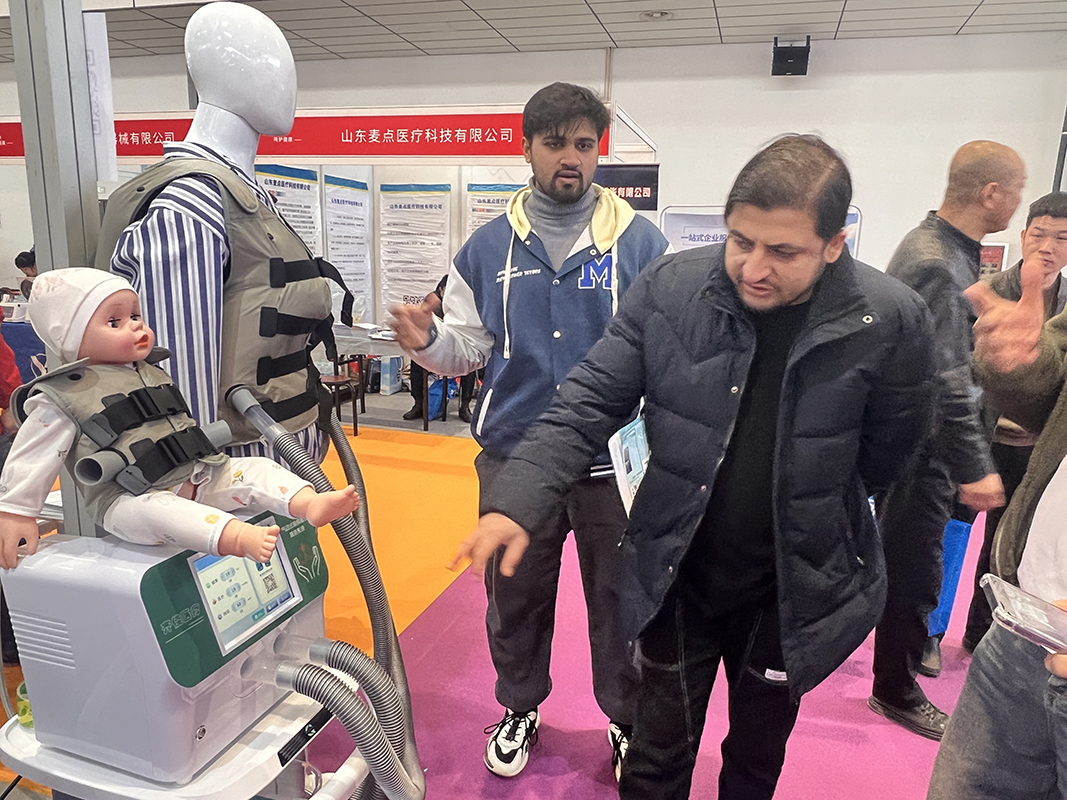The Vest Airway Clearance Device: Revolutionizing Respiratory Care through Innovation and Compassion

Introduction: A Breath of Fresh Air in Respiratory Therapy
For those with chronic respiratory disease, mucus removal from the airways can be a never-ending struggle. Conventional techniques, like manual chest physiotherapy or handheld percussive devices, typically require great effort from caregivers and pain for patients—particularly children and the elderly. Step in the Vest Airway Clearance Device, a revolutionary technology that marries technology, comfort, and effectiveness to revolutionize respiratory care. This article delves into its need, development, scientific principles, and real-world effect.
The Necessity: Why Traditional Methods Fall Short
Manual percussion of the chest, though common, has its limitations. It must be performed by trained caregivers, is labor-intensive, and causes pain to frail-chested patients. In pediatric patients with compromised reflexes or bedridden geriatric patients, inefficient removal of mucus leads to repeated infections, increased hospital stays, and life-threatening infections like pneumonia. Vest Airway Clearance Device addresses these challenges head-on with a gentler, automated alternative.
Evolution of the Vest Device: From Concept to Clinical Practice
The journey began with basic mechanical percussors during the mid-20th century, which mimicked manual treatments but were not highly accurate. In the 1990s, high-frequency chest wall oscillation (HFCWO) became a science-driven approach. The technology evolved to wearable vests, first adopted in cystic fibrosis care and later for more general respiratory diseases. Today's vest devices, like those in Chinese hospitals, use variable amplitudes and frequencies to cater to patients from infancy to adults.
How It Works: Science Meets Simplicity
The Vest Airway Clearance Device uses high-frequency vibrations supplied by an air compressor. How it works is as follows:
Oscillatory Mechanism: A pneumatic vest inflates and vibrates from 5–25 Hz, transmitting waves across the chest wall.
Mobilizing Mucus: The vibrations disperse thick secretions, mimic normal coughing, and enhance ciliary activity, moving mucus into large airways to be expelled.
Customizable Care: Adjustable settings by age, weight, and condition severity ensure both safety and efficacy.
Research, including that published in the Journal of Aerosol Medicine, confirms HFCWO's superiority in reducing hospitalization and improving lung function in chronic respiratory disease.
Global Validation and Case Studies
Worldwide, the efficacy of the vest is undeniable. For example:
Child Success: In China's Tiandong County Hospital, pneumonia-stricken children achieved quicker rates of recovery (10–15 minutes per session, twice daily) and improved compliance owing to the painless vest design.
Elderly Care: In Fuzhou First People's Hospital, bedridden elderly adults registered fewer cases of aspiration pneumonia, with nurses describing its ease of use.
Conclusion: A Future of Easier Breathing
The Vest Airway Clearance Device is not just a device—it's a lifeline. Through the use of cutting-edge technology and patient-centered design, it allows patients to reclaim their lung health. With expanding worldwide use, this device has the potential to transform pulmonary norms, proving that innovation and compassion can coexist.
To healthcare providers, an investment in such technology is not just an enhancement—it's a commitment to safer, more dignified patient outcomes.





